Yesterday I asked a question about ranking students by their points.
[Rank users in mysql by their points ]
I actually solved my problem with the help I've recieved from other question (thanks to everyone who helped me).
Meanwhile I figured out something accidently. If I try to rank my students by their points and if points column was empty (NULL) my query didn't gave an error also it sorted ranks like 1-2-3-4 but all values were NULL
this is the query I've tried
select er.*,
(@rank := if(@points = points,
@rank,
if(@points := points,
@rank + 1,
@rank + 1
)
)
) as ranking
from examresults er cross join
(select @rank := 0, @points := -1) params
order by points desc;
and this is the result.
So I wonder arent NULL values are the same ? isnt this query should gave rank 1 for every user in my database ? why it ranks null values incrementally ?
